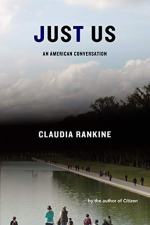
|
| Name: _________________________ | Period: ___________________ |
This test consists of 15 multiple choice questions and 5 short answer questions.
Multiple Choice Questions
1. In what year did the Smithsonian Institution put on its first major show focused on the work of Latinos?
(a) 2008.
(b) 2013.
(c) 2010.
(d) 2020.
2. Which kinds of experiments does Rankine cite from Dr. Kenneth and Mamie Clark on racism?
(a) The "Lucifer" experiments.
(b) The "doll tests" with children choosing dolls of different skin colors.
(c) The "marshmallow" tests.
(d) The "Singer" tests.
3. What is the title of Wendy Roth's book that Rankine cites in Part IV?
(a) The New Latinos in America.
(b) The Great Second Migration: Latinos and the Integration Politics.
(c) Race Migrations: Latinos and the Cultural Transformation of Race.
(d) Texas Today: Latinos Find Their Political Voice.
4. What is a common critical response to the Black Lives Matter slogan?
(a) No Lives Matter.
(b) All Lives Matter.
(c) All Lives Are Equal, But Some Are More Equal Than Others.
(d) Some Lives Matter.
5. What does Rankine question how far away she can get from by using the language of inquiry in Part IV?
(a) Blame.
(b) Confrontation.
(c) Racism.
(d) Peace.
6. What book does Rankine question if she has read herself too many times?
(a) The Color Purple.
(b) Beloved.
(c) The New Jim Crow.
(d) Stamped.
7. What does the sign the man in the photograph on page 140 of this book say?
(a) I am not ashamed/afraid to be white.
(b) No whites, no service.
(c) I am not white male privilege.
(d) I do not have enough food to eat; how can I be privileged?
8. What does the white female judge say in Part IV about her son that shocks Rankine?
(a) He is not allowed to attend a university in a majority Black city.
(b) He joined the army but does not want to serve in the same unit with Blacks.
(c) She is worried about his safety because he is moving to Brooklyn.
(d) She has forbidden him to propose to his Black girlfriend.
9. Which Indiana police captain challenges another police captain over an issue of white privilege in a transcript in Part III?
(a) Carri Weber.
(b) Riley Winston.
(c) Rainie Blackenship.
(d) Penny Holder.
10. What trope does Rankine worry she is "sailing closer" to in Part III?
(a) That of the tough boss.
(b) That of the angry Black woman.
(c) That of the overbearing mother.
(d) That of the strident academic woman.
11. What does Rankine write that she is trying to understand in the very beginning of Part III?
(a) Why saying someone is racist seems offensive to that person.
(b) Why so many people declined to be interviewed for her book.
(c) Why telling a white male he has benefitted from white male privilege feels abusive to him.
(d) Why working as a researcher pays so little.
12. How did Scott Arndt react to hearing the phrase "white male privilege" from a colleague?
(a) He said it was fair.
(b) He said it aroused suspicion in him.
(c) He said he thought it was a sad day for America.
(d) He said it was extremely offensive.
13. What does Rankine write that she would have preferred from the woman who tried to change the subject from racism at the dinner party instead of "false civility"?
(a) Reproach.
(b) Directness.
(c) Screaming.
(d) Fortitude.
14. Who did Laura Ingraham address her "Shut up and dribble" comment to, as cited by Rankine in Part IV?
(a) LeBron James.
(b) Magic Johnson.
(c) Kobe Bryant.
(d) Charles Barkley.
15. Who wrote the play Rankine goes to see in Part III with a white friend?
(a) Leslie Hinds.
(b) Stephen Retrow.
(c) Jackie Sibblies Drury.
(d) Neil Simon.
Short Answer Questions
1. Which comedian does Rankine call out in Part IV for revealing parts of his racial identity but not revealing other parts of his racial identity?
2. Which of the following situations arose in which a white woman filmed and threatened a Black man in Part IV?
3. Which U.S. senator once said, "If he invited me to a public hanging, I'd be in the front row"?
4. What does Rankine's white friend tell her about why she refused to follow the play's instructions at the end of the play in Part III?
5. What does Rankine quote comedian Chris Rock as saying in Part IV?
|
This section contains 821 words (approx. 3 pages at 300 words per page) |

|




